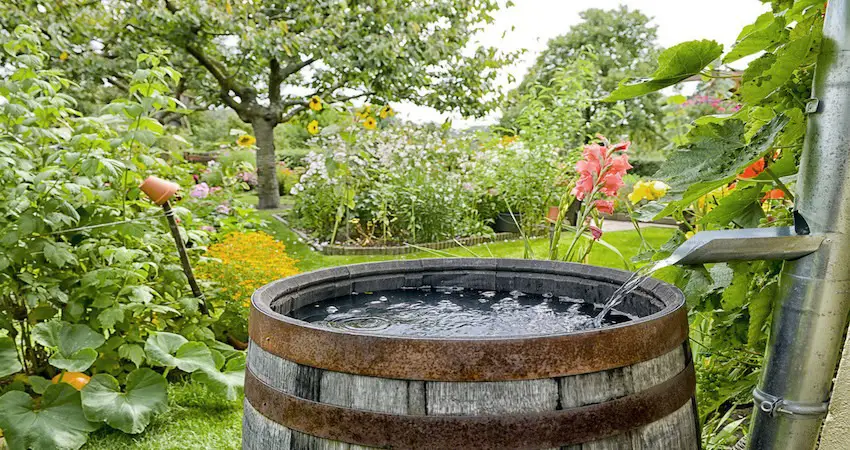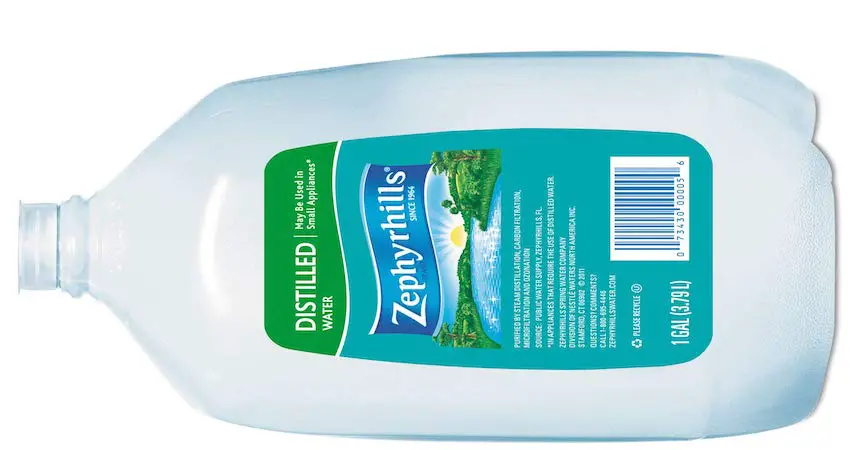Last Updated on May 28, 2022 by Gary Stephen
Is bottled water plants good?
Is it really any better than using plain tap water?
And if yes, how so?
Every plant needs water to thrive!
Yes, there is absolutely no argument to that.
However, gardeners often debate over which type of water is best for hydrating plants.
The most controversial question during this process is…
Don’t fret. We’ve done all the research so that you don’t have to. We’ll discuss the answer below:
What are bottled water?
Bottled water is drinking waters packaged into food-grade plastic or glass bottles. The water herein is thoroughly processed to achieve and comply with the regulatory health standards. Thus, ensuring it is safe for human consumption.
What types of bottled water plants are there?
There are different varieties of bottled waters available on the market today. Here are the most common types and how each differs from one another:
| Water Type | Treatment Process | Description | Availability |
| Distilled | Distillation |
|
Check the price on Amazon |
| Purified | Filtration, Chlorination, Distillation |
|
Check the price on Amazon |
| Spring Water | Filtration |
|
Check the price on Amazon |
| Mineral Water | Filtration
Distillation |
|
Check the price on Amazon |
Which type of bottled water is suitable for plants?
We already know now that all bottled water is not created equal. Some contain different chemicals than the others. So, it is also expected to have different effects when used to water your plants. 
There are actually two types that seem to give the most benefit to your plants – purified water and spring water. Both contain traces of inorganic minerals that help your plant to thrive better.
In the case of spring water, it absorbs the minerals from the soil and the rocks it flows through underground. Thus, making them naturally rich in essential elements. This includes calcium, magnesium, sodium, and potassium.
Meanwhile, purified water also do contain traces of inorganic minerals. Although it may have initially undergone demineralization processes, certain elements are also added in the later stages. Thus, you can still expect purified water to provide your plants with some level of nutrition.
On the other hand, too many minerals can cause problems too. This is quite true in the case of mineral water. This type of bottled water tends to have greater amounts of inorganic elements. So, using this water to hydrate your plants daily can increase the chances of build-up. Thus, causing it more harm than good in the end.
The distilled water barely contain any nutrients. It is literally stripped off from bacteria to chemicals, and even the good stuff. Thus, this type is the least beneficial for your plant. It can maintain the hydration aspect though. But still, not enough nutrients to allow the plant to flourish.
Is bottled water any better than tap water?
Okay, so we now know that the inorganic minerals from both spring and purified water is what makes it good for your plants.
But, doesn’t regular tap water also contain them too?
The answer is a definite, YES!
Of course, tap water also contains minerals necessary for plant growth. However, the problem is that certain areas do rather have “hard water”. That means these sources have higher concentrations of elements including calcium and magnesium. Also, this kind of tap water is most often treated with sodium to help neutralize its hardness.
So, this is actually where the problem with tap water arises.
The accumulation of these calcium, magnesium, and sodium in the soil can then lead to toxicity. Thus, altering the ability of the plant to absorb and retain water and nutrients. In effect, it impairs its cell development and causes growth stunting.
Are there also drawbacks in using bottled water for watering plants?
As always, if there are pros, there are also cons!
The most obvious drawback in using bottled waters for your plants is the high COST.
Regardless of the type you use, bottled waters can be costly. Of course, you are not just shelling out for the plain water itself. But, you are actually paying a premium for the treatment processes, packaging, marketing, etcetera. So, keep this in mind if you ever decide to use bottled waters to hydrate your plants.
Another problem with using bottled water is its huge environmental impact. Almost always, bottled water is packaged in plastic or sometimes glass containers. Thus, regular usage of which can add up to our wastes. As we all know, plastic bottles take about a thousand years to decompose. So, just imagine these bottles would still continue to exist in the face of the earth long after you and your plants already dies. Not good at all!

Are there alternatives to bottled water?
Bottled water is not perfect, nor is it an absolute must for watering your plants.
Yes, they are good!
But you should also know that there are alternative means to provide the same benefits without ruining your budget or adding a burden to the environment.
My number one choice for watering plants is always rainwater. It doesn’t contain hard water elements, it has the right pH for most plants, and it is absolutely FREE! Your plants would definitely feel like they are being nurtured by mother nature itself. All you have to do is to collect as much rainwater as you can whenever the rain pours. Store the water properly and that’s it!
However, if you live in an area barely experiencing rainfall, then you can just use your regular tap water. There are two ways to ensure the safety of your tap water. Firstly, you can either use a charcoal filter to help remove the impurities. Or, you can also the water for a couple of minutes. Boiling treats tap water by killing the bacteria and other contaminants. Just make sure to allow the boiled water to cool down completely before pouring into your plants.
Our top picks for carbon water filters:
Filtrete Standard Capacity Carbon Filter
DuPont Universal Whole House Carbon Wrap Filter
Activated Carbon Block Water Filter
Aquaboon Big Blue Coconut Shell Water Filter
Wrapping Up
In this article, we researched not only the different types of bottled water, but also the pros and cons of using the different water to water your plants. Yes, bottled water may contain some essential minerals to help them thrive, but you have to keep the dire circumstances in mind: not only is purchasing bottled water for plant use costly, the plastic bottles involved are sure to have a negative impact on the environment. My suggestion? Rain water! But read more about that above.

